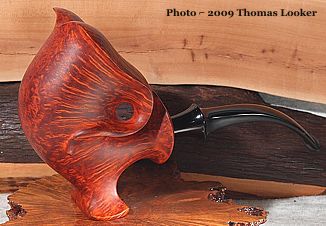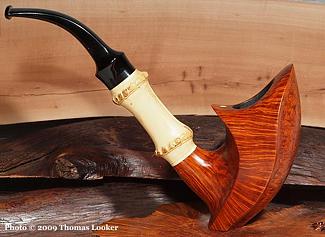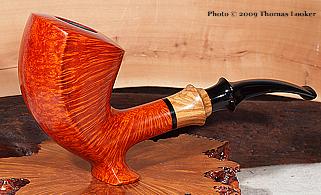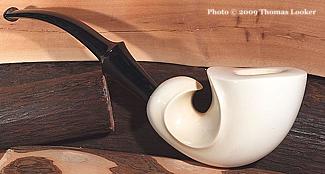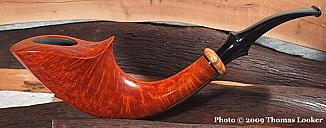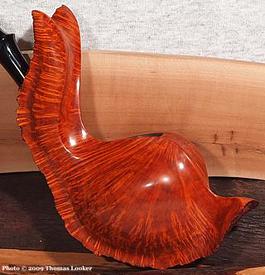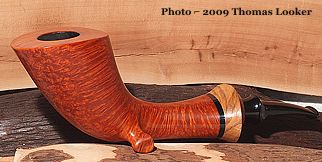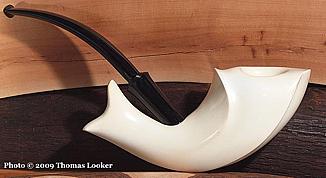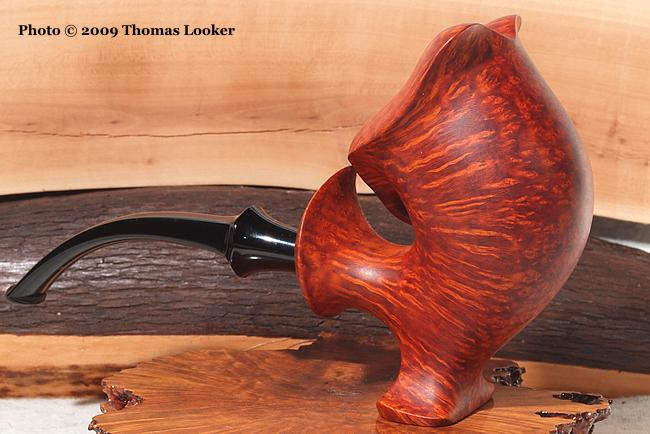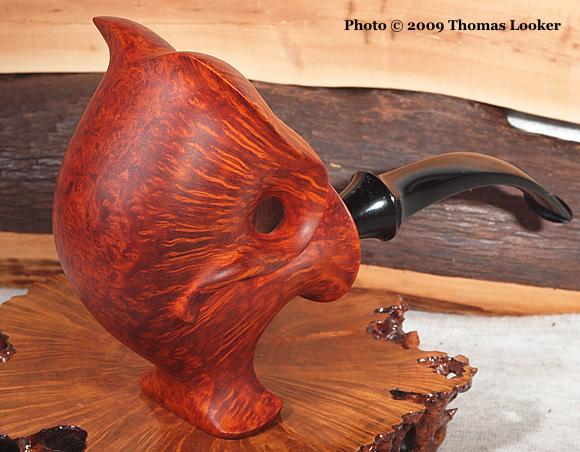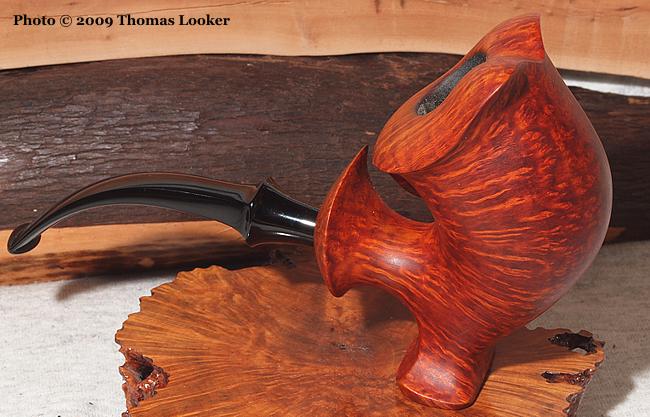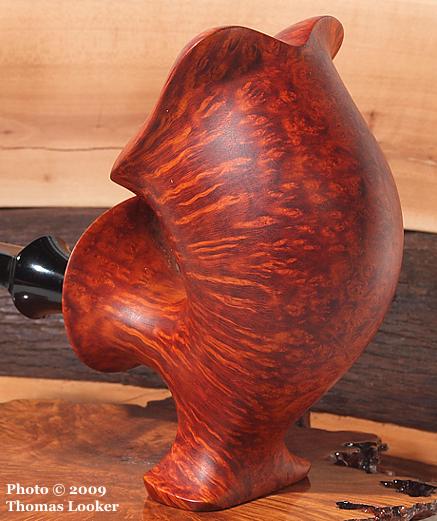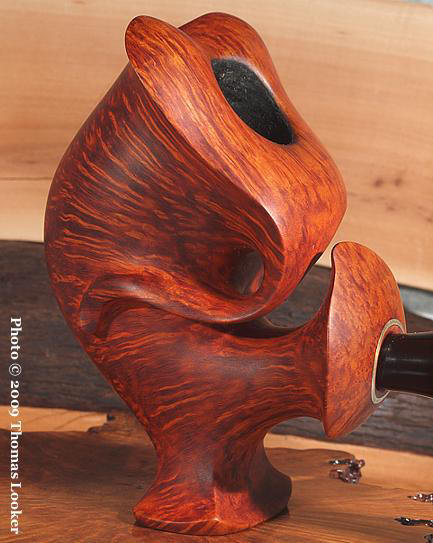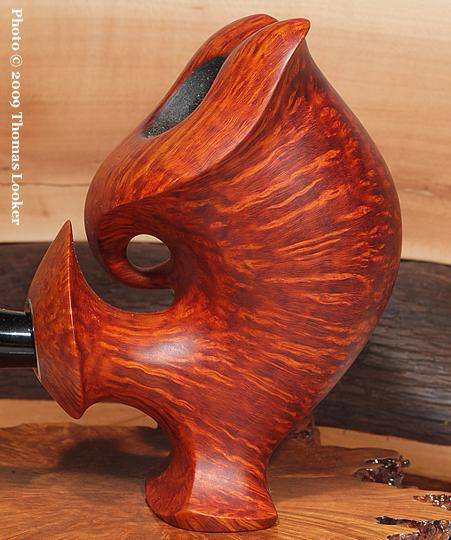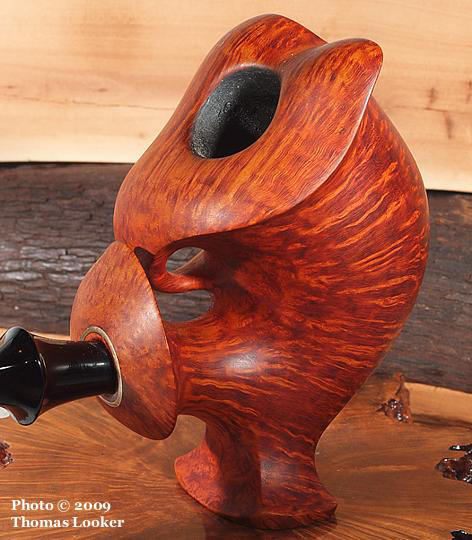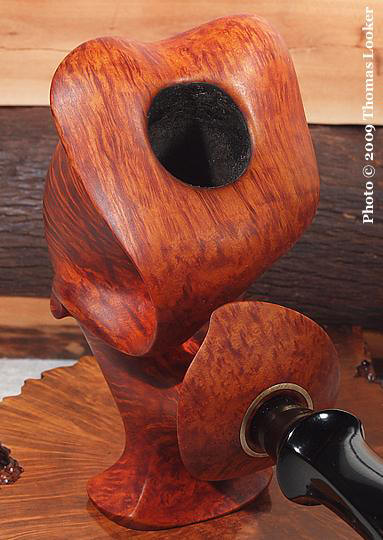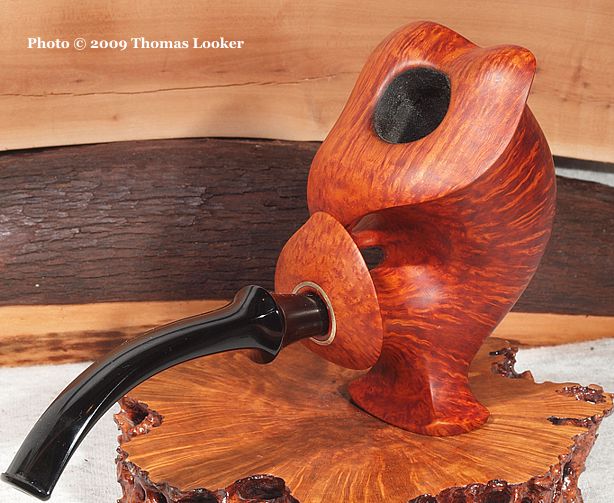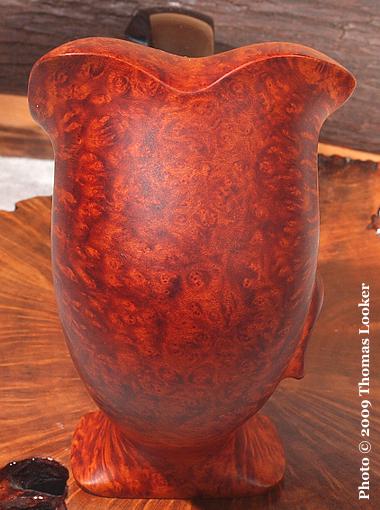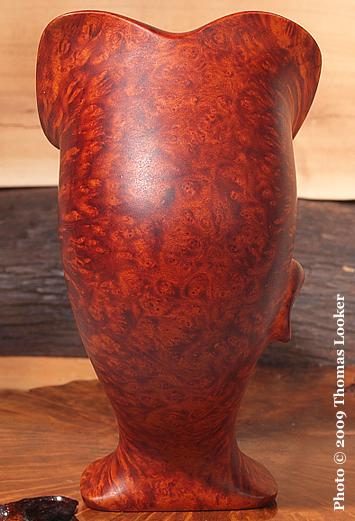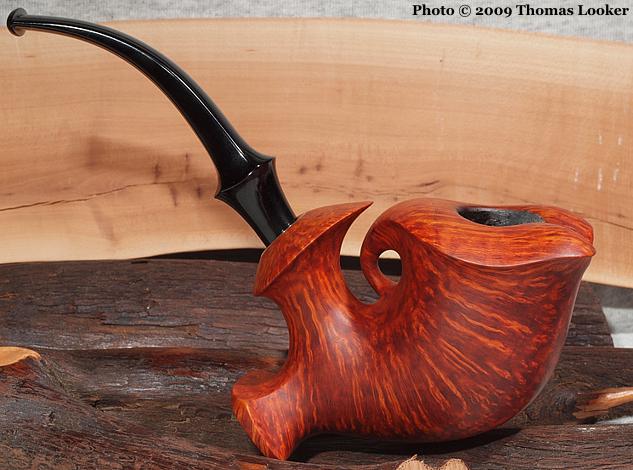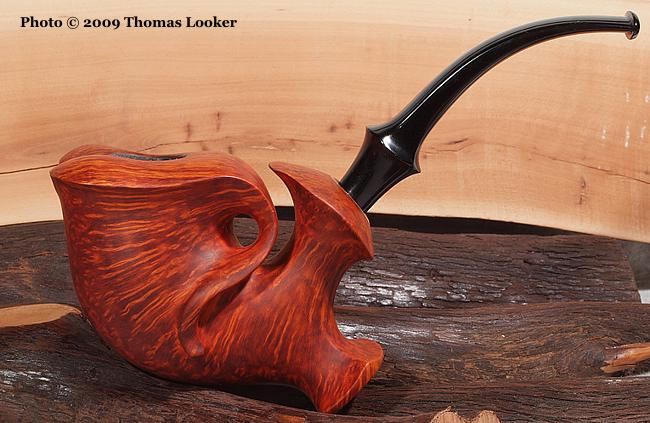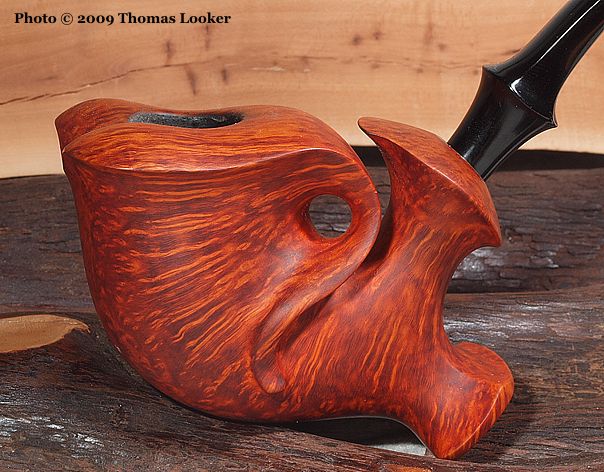|
Teddy originally developed this shape as a sitting
variation on the conch, but as he was working on it, he suddenly saw the
head of a circus elephant. He came to refer to the the piece as
"Circus" but I look at the matter differently. Teddy has long been a
consummate master of the Elephant's Foot and
he keeps developing marvelous variations of that classic form.
Therefore it seems only fitting to me that we call this new shape,
Elephant's Head.
NOTE ABOUT THE
FINISH: For the first time
that he can remember, Teddy did not put a carnauba wax shine on
Elephant's Head.
Instead, he finished the pipe with oil,
leaving a lovely matte-finish that reminds me of fine old
furniture. While he could have justified this decision a number of
ways (including his love of new challenges), he admitted that expediency had "something" to do with his
choice. Teddy was trying to finish the pipe for the Chicago
show and was running out of time. The piece had required several
extra hours of difficult sanding
because of the small shapes on (and in) the back of the bowl.
While features like this are easy enough for Tokutomi to create with his
small fingers, Teddy's extremely large hands made such miniature work extremely challenging. Of course
Teddy didn't stop sanding (using teeny pieces or sand-paper) until he had
obtained a glass-smooth finish even inside the briar-loops. But it
would have taken a lot more time - and some newly-designed polishing tools
- if he had tried to apply wax on all the pipe's surfaces and then rub it
into a high-gloss shine. Applying furniture oil was a far more
practical solution.
As so often happens with Teddy's
"improvisations," though, what starts out looking like a practical
necessity turns out to have been an aesthetic imperative.
The unusual matte finish goes beautifully with this unusual composition.
The quiet, burnished surface seems entirely consistent with the antique,
almost baroque mood emanating from the gently-swelling forms, the
luxurious ribbons of grain. |

